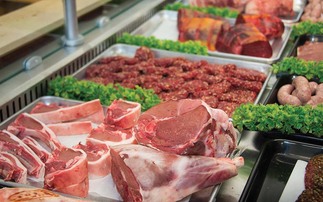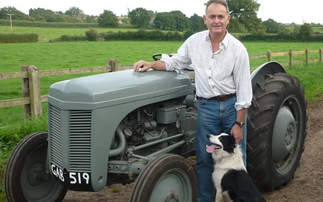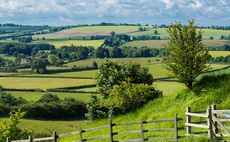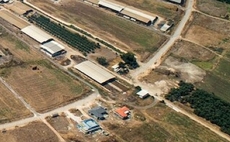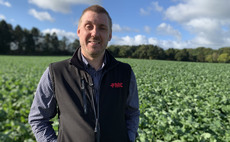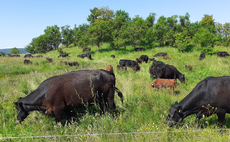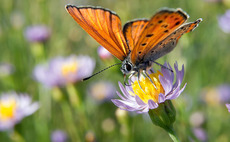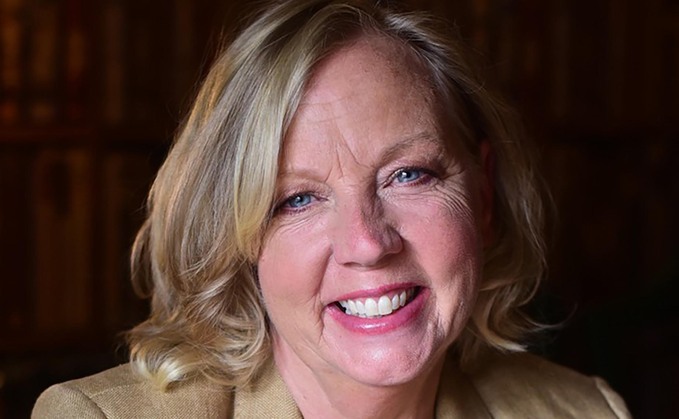
Business investor and BBC Dragon's Den star Deborah Meaden
I may not have a background in the food industry, but I do know business. And the best businesses are the ones that anticipate and respond to what their customers want.
So new research commissioned by the ground-breaking food and farming certification scheme, Fair to Nature, from the RSPB should be a 'wake-up call' to farmers, food and drink brands and supermarkets.
The Ipsos Mori1 survey highlights growing concern about nature loss and a desire to halt its decline, with 70 per cent of UK adults found to be concerned with the loss of UK wildlife.
The BBC's Wild Isles programme shocked us all by highlighting the danger our country's nature faces. But the crisis is not confined to remote areas; it is on our doorstep.
Though we can see diminished biodiversity with our own eyes, most don't realise how the destruction of critical ecosystems puts the security of our food supply at risk.
In the past 50 years, nearly half of all wildlife species in the UK have experienced a devastating decline. The statistics paint a sombre picture:
- more than over half of our farmland birds have disappeared (58 per cent — from the Farmland Bird Index)
- Since 1970, 41 per cent of species in the UK have declined (State of Nature Report 2019)
- Since 1976, 80 per cent of butterfly species in the UK have decreased in either abundance, distribution or both (State of UK's Butterflies 2022 report, Butterfly Conservation)
- Since 1937, 97 per cent of our wildflower meadows have disappeared. (Plantlife)
Though it may be challenging, we must acknowledge that nature is being damaged at a terrifying rate and must urgently take action to stop biodiversity declines.
There are many reasons to be concerned, but most importantly — we depend on nature to provide our food and, put simply, without nature there is no food. As an investor, I know there is no future for a business that cannot produce what its customers rely on it for.
With more than two thirds of Britain's land currently dedicated to farming and approximately 1 million of the world's estimated 8 million species of plants and animals at risk of extinction, we must act now. So, how should the food supply chain respond?
The ground-breaking food and farming certification scheme Fair to Nature should provide us all with hope.
Managed by the RSPB, the UK's largest wildlife and conservation charity, Fair to Nature is the only UK certification scheme with a focus on biodiversity and reversing the loss of nature that threatens our long-term food supply. The certification scheme not only boosts biodiversity, but consumer confidence as food brands that buy ingredients from certified farms can display the recently launched RSPB Fair to Nature Mark.
Authenticity about sustainability claims is vital to gain the trust of an increasingly environmentally conscious market. While true sustainability can be complex to navigate, consumers can trust the Fair to Nature standard as it is supported by science and certified by the RSPB.
Under the scheme, farmers make at least 10 per cent of their farmed land available, including areas which are difficult to farm productively, for a range of high-quality nature habitats.
Farmers must lead the way by adopting the Fair to Nature certification to protect nature and promote biodiversity. With consumers looking to connect with truly sustainable food brands, displaying the Fair to Nature Mark on packaging will help consumers purchase products that make sure that we are prevented from facing a future without food.
Case study
Robert Law, a dedicated member of Fair to Nature since 1985, is deeply committed to biodiversity on his Chiltern Hills farm. Despite the challenges posed by light and drought-prone soil, Robert employs a mixed farming approach and has actively restored hedgerows while creating wildlife habitats.
The introduction of wildflower margins and ponds has also contributed to a notable increase in insect populations. The tangible results, such as the return of the Grey Partridge and flourishing wildlife, serve as a testament to the efficacy of the Fair to Nature scheme.
Robert emphasises that the scheme harmoniously complements other systems he has implemented on his farm, making it a valuable and seamless addition to his overall approach to sustainable agriculture.
For farmers considering joining Fair to Nature, Robert's advice is to look beyond the specific requirement of allocating 10 per cent of farmland to nature and instead focus on understanding the wider benefits of participation.













